The year was 1469, and the 18-year-old Castilian Princess Isabel (also spelled Isabella) was struggling with an important question: Whom should she marry? Marriage is a big decision for any young woman, but for Isabel it was more than personal. She was heir to the throne of Castile, so her decision would affect the entire realm.

The ‘Right’ Man
Isabel had always been expected to wed a powerful man, perhaps a prince or a duke. Her brother Alfonso’s death in 1468, however, had changed everything. Her half-brother, King Enrique IV (also spelled Henry IV), had hoped for a son to inherit and rule his kingdom, but his wife had a girl, Juana, and he was not the father. For this reason, Isabel’s claim to the throne was stronger than Juana’s. Well aware of this fact, Enrique was determined to make sure that Isabel married the “right” man. He had to be someone strong and intelligent, someone who would rule with Isabel, not dominate her. The question remained: Who was there who was single, royal, and suitable to be the spouse of a young princess and heir-apparent?
This story is from the {{IssueName}} edition of {{MagazineName}}.
Start your 7-day Magzter GOLD free trial to access thousands of curated premium stories, and 9,000+ magazines and newspapers.
Already a subscriber ? Sign In
This story is from the {{IssueName}} edition of {{MagazineName}}.
Start your 7-day Magzter GOLD free trial to access thousands of curated premium stories, and 9,000+ magazines and newspapers.
Already a subscriber? Sign In
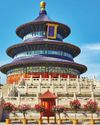
Worshiping Heaven
For almost 500 years, emperors of the Ming and Qing dynasties offered sacrifices and prayers at the Temple of Heaven in Beijing.
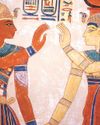
Peace Reigns
The news spread throughout Egypt—a new pharaoh, Ramses III, now sat on the throne.
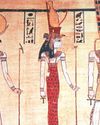
Problems To The East
Ramses III, the second king of Egypt’s 20th Dynasty, is viewed as Egypt’s last truly great pharaoh.
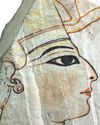
The Successors
Following the death of Ramses III, eight pharaohs, all named Ramses, ruled Egypt.
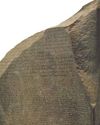
Stone Code
Hundreds of ships, led by the French general Napoleon Bonaparte, sailed from France in May 1798 on a secret mission.

Up & Away!
Eclipse observers often face unexpected difficulties, sometimes on their way to their chosen sites and sometimes at a site itself.

Edison's Eclipse Adventure
Thomas Edison (1847–1931) is the best-known inventor in American history.
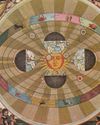
Digging Up Copernicus
The scientist “who made the Earth a planet” is how the Harvard-Smithsonian astronomer Owen Gingerich refers to Nicolaus Copernicus (1473–1543). Copernicus’ path breaking book, On the Revolutions of the Heavenly Spheres,challenged the centuries-old belief that the Earth stood stationary at the center of the cosmos.
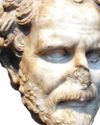
Demosthenes & Cicero
Even today, more than 2,000 years after they lived, Demosthenes and Cicero are still considered two of history’s most outstanding orators.
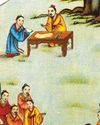
Confucius & Socrates
Some teachers are so inspirational that their influence lives on long after they die.